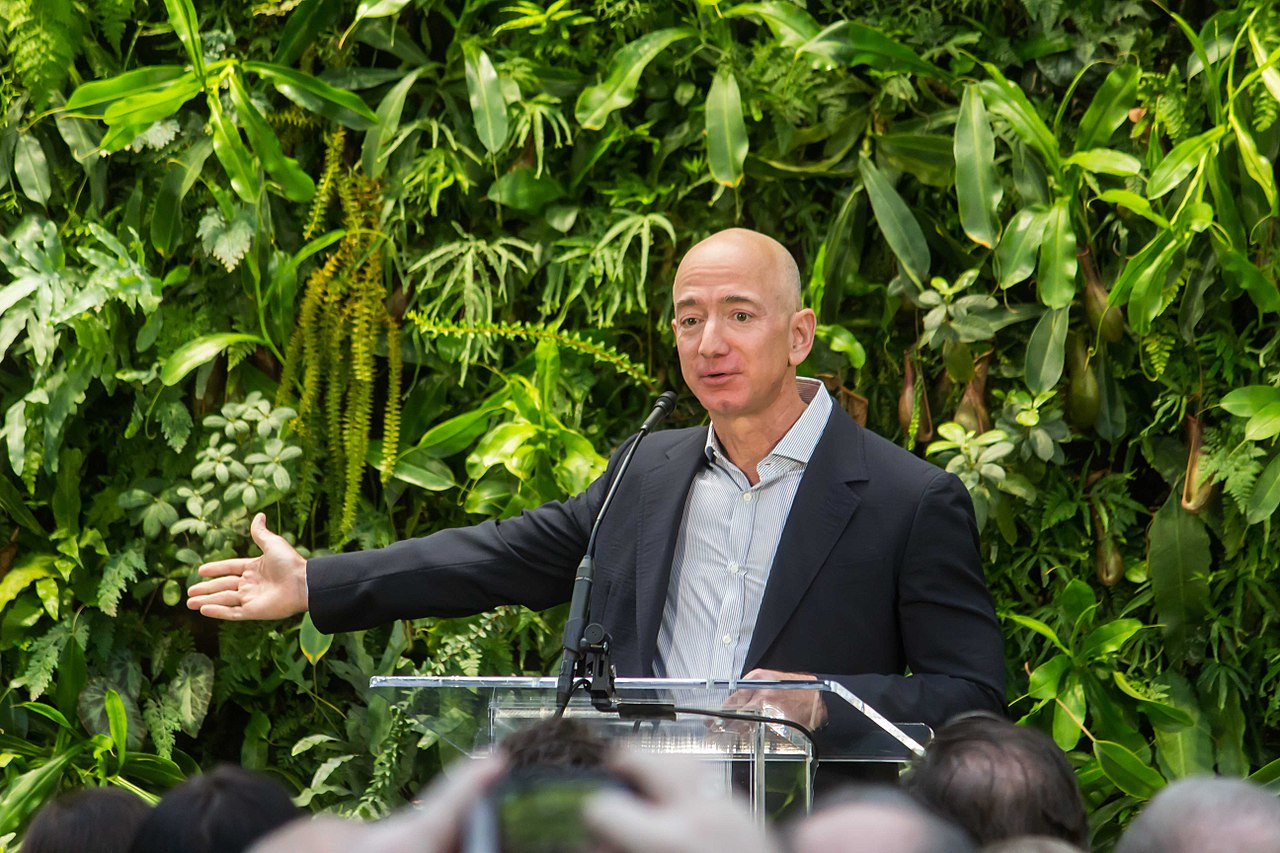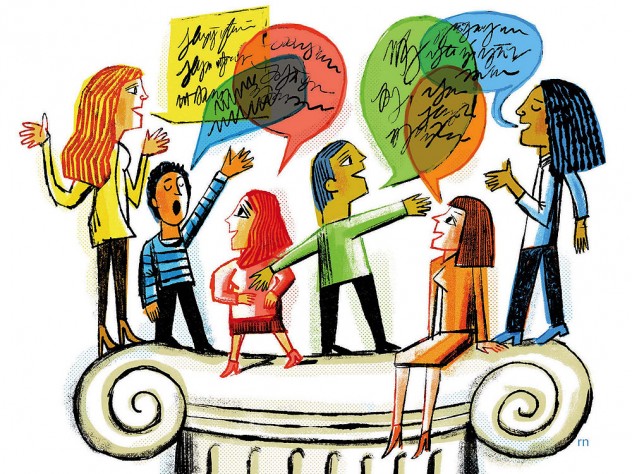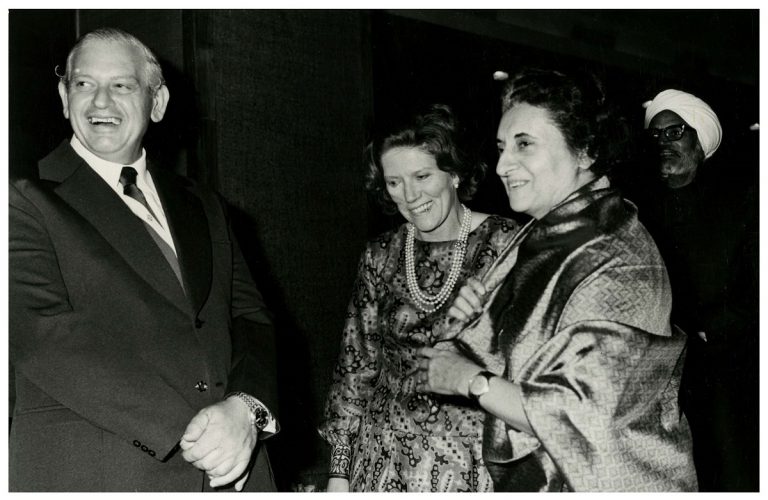Jeff Bezos- A Utilitarian profiteering during crisis?
Deepish was an engineer till he found out he really wasn’t and movies lie about them. Currently he is searching history to find a profession for himself.
My notion of man is, that, successfully or unsuccessfully, he aims at happiness, and so will continue to aim as long as he continues to be man in everything he does.
Jeremy Bentham
The world is going through a tremendous crisis. Billions of people are locked up within four walls fearing an invisible assassin who moves silently from the empire towers to the red fort, from the amazon forests to the arctic circle bringing the small world to a screeching halt.
COVID- 19 is unprecedented in the history of living humankind for the disruption and the insuperable loss it has brought upon the imagined global community. Nearly 4 million people have been infected, and a quarter-million has fallen fighting this virus while science and religions watch it haplessly.
In India, and across the world, millions of people are trying to reach home to safety, some walking barefoot or pedaling cycles and others airlifted thousands of kilometers back to their home as their livelihood and dreams come crashing around them in eerie silence. But amidst this huge humanitarian crisis, a thing which has spilled onto the streets ignominiously is the inequality and the general antipathy towards the poor.
Jeff Bezos, the world’s richest man, increased his wealth by a whopping 25 billion during this pandemic. All the while ignoring the safety of his employees and also firing a manager who voiced protest at the callousness of the administration towards warehouses where many individuals were getting sick and developing symptoms like fatigue, lightheadedness, and vomiting. He had subsequently written for a newspaper about how there were no proper gloves, masks, and adequate sanitizers, thus, increasing the possibility of the workers getting infected. Above that, mandatory overtime was imposed on them to keep up with increased demand. How do we justify the actions of an individual who takes advantage of the situation to increase his wealth at the expense of dignified living for his fellow human beings?
I try to answer this question with the help of classical utilitarian principles propounded by Jeremy Bentham.
“In the general tenor of life, in every human breast, self-regarding interest is predominant over all other interests put together. More shortly, thus,—Self-regard is predominant,—or thus,—Self-preference has a place everywhere… Producing wealth gives a man happiness, and it will drive him to keep doing it even if it hampers somebody else.”
Jeremy Bentham
The actions of Jeff Bezos is considerably self- regarding but not illegitimate. He is working under the laws of the common people. If anything he has neglected, it may be ‘rule of right,’ ‘moral sense,’ and ‘natural law’ which Bentham dismisses as part of his consequentialist Utilitarian doctrine. For Bentham, most of the time, we do not know what we are doing as we are driven subconsciously by pleasure and pain, the sovereign masters which govern us. But can the pleasure of one person be regarded as more important than the several thousand others who live with him? And if that individual has an increased capacity to pursue pleasure, and it happens at the cost of inflicting pain on others, who are to be favored?
According to Bentham, ‘ the community is a fictitious body, composed of the individual
persons who are considered as constituting it, the interest of the community is the sum of the interests of the several members who compose it’. And further, Bentham would argue, ‘An action then may be said to be conformable to the principle of utility when the tendency it has to augment the happiness of the community is greater than any it has to diminish it.’ Bezos is very much part of the community, and when he generates wealth, he contributes to the wealth of the community and thus making the greatest number happy in it. Because for Bentham, it is the net increase in happiness/ resources in a community that is important rather than the increase in happiness of individual constituents in it to justify an action. Bezos is certainly egoist but not subjectivist in deciding his self- interest as the empire of pain and pleasure drives his self- interest even without his conscious approval of it as a utilitarian. Bentham seems to take away the intentions of a man when he is hurting someone else. The man acts independently of any motive as he is under the sovereignty of pleasure/pain. If this is the case, can human beings be called rational itself?. Can they decide what real happiness is?
Then is it ethical for an individual to profiteer during a crisis? The individual is not doing anything which is destabilizing the fight against the virus. But, he is just working for his self- interest which, on many occasions, may not be his intention too. Maybe Bentham would agree, but he also argues that ‘ the great enemies of public peace are the selfish and dissocial passions: passions:—necessary as they are—the one to the very existence of each individual, the other to his security.’ The excess of selfish and dissocial passions will hamper the tranquillity of the community warns Bentham.
To Bentham, ‘In a highly matured state of society, in here and there a highly cultivated and expanded mind, under the stimulus of some extraordinary excitement, a sacrifice of self-regarding interest to social interest, upon a national scale, has not been without example—public virtue in this shape cannot reasonably be regarded as being so frequently exemplified as insanity’ and he regards these ‘public-spirited’ men as the ‘most virtuous of men’. Then what characterizes Bentham’s approval for an individual who has a propensity to seek pleasure at the cost of inflicting pain on others? If, according to Bentham, Bezos’ actions are not virtuous, then why should he not be restrained for profiteering at the expense of his workers? Bentham believed ‘every human being is led to pursue that line of conduct which, according to his view of the case, taken by him at the moment, will be in the highest degree contributory to his own greatest happiness.’ Thus, consequently, it lands us to the question, what is the true happiness of Jeff Bezos indeed? And is his happiness contributing to the greatest happiness of the greatest number? I would argue otherwise on two different factors that Bezos is not increasing his happiness, nor is he driven by self- interest when he is profiteering at the expense of others.
Factor No. 1
When Jeff Bezos is not adequately protecting his workers and putting their lives at risk during a crisis or otherwise during normal circumstances to make profits, he is hampering his happiness. How? Suppose some workers get infected with coronavirus or get disenchanted with work due to the general apathy of the management; there would be a loss of labor that Amazon has to replace with new workers. This would result in a loss of time in recruiting new workers and them getting adapted to the new work settings. Beyond it, Amazon has to train them initially, and there would also be a severe loss of efficiency due to the absence of old workers who had got used to the work process. Thus, Amazon has to wait until the delivery system becomes as efficient as it was earlier, all the while losing a lot of resources in recruitment, skilling, and time during the peak demand. If Amazon had opted for more safety measures and humane working conditions for its workers instead of blatant profiteering, it would have earned a more loyal workforce, happy working for the organization.
In an ideal situation, had Jeff Bezos contributed more to improving his labor force, it would have given him a more committed workforce working for his profits with happiness. Thus, it would have been a situation where an action is contributing to the greatest happiness of the greatest number. Instead, Bezos’s choice to neglect his workers’ safety is hampering the happiness of himself and society.
An alternate thought could always be that warehouse workers are always replaceable, and the cost of increasing their wages and social security will always be higher than the replacement process—ideally, more profit and more happiness for Bezos. But in a capitalistic environment, there is always competition over labor and modernization. What remains unchanged is the credibility. When the workers are fired, and their needs are not met, a large portion of the society also gets affected, thus producing general unhappiness in society. This can cause a severe dent in the credibility of the enterprise. Essentially, Bezos is trading off his long term happiness of sustaining his business as a successful model with a loyal workforce for short term happiness of heaping profits. If the workers are paid decently, the greater part of the society can consume things and live a dignified life, thus increasing the net consumers in society and the general happiness.
Factor No. 2
Bentham says, “give a man a ribbon, and you will produce a certain quantity of pleasure in his mind. To this ribbon add another, you may add more or less to the former quantity of his pleasure. You may add to it, but you will not double it.” This is diminishing marginal utility, first explained by the Swiss mathematician Daniel Bernoulli. Hence, according to classical utilitarianism, absolute happiness is not increased indefinitely by the procurement of any one single commodity, in this case, wealth amassed by Jeff Bezos will not provide him happiness if he cannot exchange it for something he feels will add to his happiness. But is there anything more precious and valuable than money in the world? Then what is it that money can be exchanged to provide happiness for an individual?
I would argue, for the world’s richest man exchanging any commodity- the world’s costliest car or the most expensive living quarters will not provide him happiness as all of them are smaller in value compared to money which he has in abundance. It is the ‘love of power’ and ‘love of reputation,’ which can be exchanged for happiness. True happiness for Bezos would lie in contributing generously to the income of his laborers to gain power and engage in philanthropy in society to gain reputation. In Bentham’s words, it would be a ‘sacrifice of private to the public interest, [is] but a sacrifice of a self-supposed private interest in one shape to a self supposed private interest in another shape’. Thus essentially, it would be Bezos’ self-interest to repudiate profiteering and engage in protecting his laborers and the poor in the community and become a ‘virtuous man’ in the eyes of the people. Doesn’t his action contribute to the greatest happiness of the greatest number without sacrificing his self- interest?
To Bentham, it is work that produces utility. Hence, to him, until the state protects people’s abilities to work and accumulate wealth to a considerable extent, we will not get the benefits of a utilitarian system. Especially during a crisis, the greatest happiness for the greatest number would be to serve the community. Thus, he affirms the importance of individual rights, and the state’s responsibility is to protect it for maximum utility. But I try to prove even otherwise, without the state intervening to correct the fault, it is in the interest of Bezos to protect his laborers. As much as Bezos has the right to work and earn, every worker in his factory also has the right to stay alive and use his ability to work productively, which cannot happen unless he is protected. Hence, Bentham, today, would have said that the workers of Amazon have every right to be protected and provided with better working conditions to create utility through their labor. It is in the self- interest of Jeff Bezos to do the same.
Profiteering during a crisis, Jeff Bezos- A Utilitarian? No, he is not.
Bibliography
- W.Stark. 1954. JEREMY BENTHAM’S ECONOMIC WRITINGS, Taylor & Francis Group.
- Jeremy Bentham, The Works of Jeremy Bentham, vol. 1 (Principles of Morals and Legislation, Fragment on Government, Civil Code, Penal Law), The Online Library of Liberty
Featured Image Credits: Wikimedia








